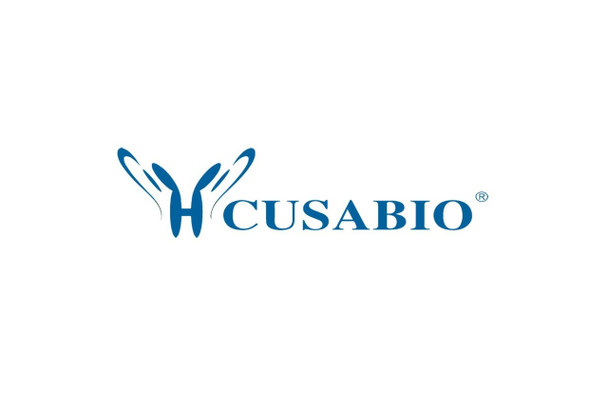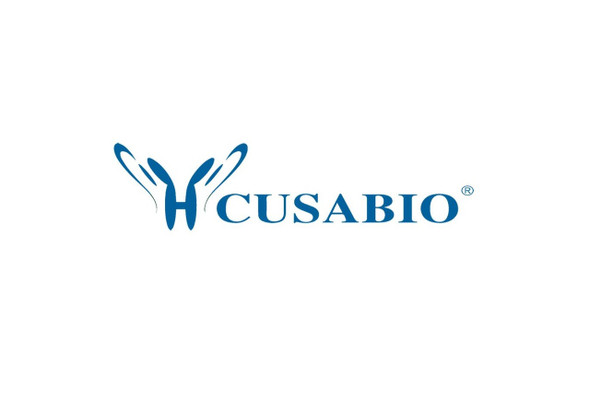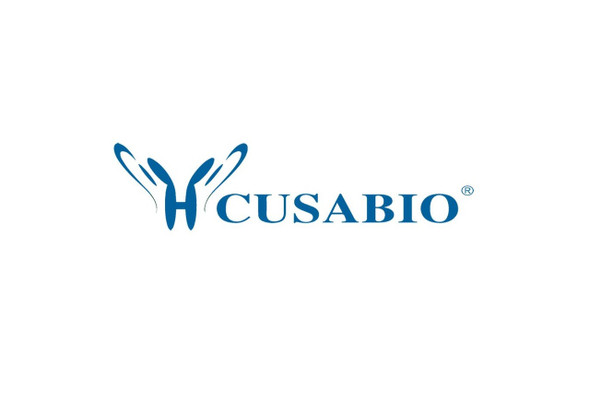Cusabio Mouse Recombinants
Recombinant Mouse E3 ubiquitin-protein ligase Mdm2 (Mdm2) | CSB-EP013626MO
- SKU:
- CSB-EP013626MO
- Availability:
- 13 - 23 Working Days
Description
Recombinant Mouse E3 ubiquitin-protein ligase Mdm2 (Mdm2) | CSB-EP013626MO | Cusabio
Alternative Name(s): Double minute 2 proteinOncoprotein Mdm2p53-binding protein Mdm2
Gene Names: Mdm2
Research Areas: Others
Organism: Mus musculus (Mouse)
AA Sequence: MCNTNMSVSTEGAASTSQIPASEQETLVRPKPLLLKLLKSVGAQNDTYTMKEIIFYIGQYIMTKRLYDEKQQHIVYCSNDLLGDVFGVPSFSVKEHRKIYAMIYRNLVAVSQQDSGTSLSESRRQPEGGSDLKDPLQAPPEEKPSSSDLISRLSTSSRRRSISETEENTDELPGERHRKRRRSLSFDPSLGLCELREMCSGGSSSSSSSSSESTETPSHQDLDDGVSEHSGDCLDQDSVSDQFSVEFEVESLDSEDYSLSDEGHELSDEDDEVYRVTVYQTGESDTDSFEGDPEISLADYWKCTSCNEMNPPLPSHCKRCWTLRENWLPDDKGKDKVEISEKAKLENSAQAEEGLDVPDGKKLTENDAKEPCAEEDSEEKAEQTPLSQESDDYSQPSTSSSIVYSSQESVKELKEETQDKDESVESSFSLNAIEPCVICQGRPKNGCIVHGKTGHLMSCFTCAKKLKKRNKPCPVCRQPIQMIVLTYFN
Source: E.coli
Tag Info: N-terminal 6xHis-tagged
Expression Region: 1-489aa
Sequence Info: Full Length
MW: 58.6 kDa
Purity: Greater than 90% as determined by SDS-PAGE.
Relevance: E3 ubiquitin-protein ligase that mediates ubiquitination of p53/TP53, leading to its degradation by the proteasome. Inhibits p53/TP53- and p73/TP73-mediated cell cycle arrest and apoptosis by binding its transcriptional activation domain. Also acts as a ubiquitin ligase E3 toward itself and ARRB1. Permits the nuclear export of p53/TP53. Promotes proteasome-dependent ubiquitin-independent degradation of retinoblastoma RB1 protein. Inhibits DAXX-mediated apoptosis by inducing its ubiquitination and degradation. Component of the TRIM28/KAP1-MDM2-p53/TP53 complex involved in stabilizing p53/TP53. Also component of the TRIM28/KAP1-ERBB4-MDM2 complex which links growth factor and DNA damage response pathways. Mediates ubiquitination and subsequent proteasome degradation of DYRK2 in nucleus. Ubiquitinates IGF1R and SNAI1 and promotes th to proteasomal degradation .
Reference: A novel nuclear interactor of ARF and MDM2 (NIAM) that maintains chromosomal stability.Tompkins V.S., Hagen J., Frazier A.A., Lushnikova T., Fitzgerald M.P., di Tommaso A.D., Ladeveze V., Domann F.E., Eischen C.M., Quelle D.E.J. Biol. Chem. 282:1322-1333(2007)
Storage: The shelf life is related to many factors, storage state, buffer ingredients, storage temperature and the stability of the protein itself. Generally, the shelf life of liquid form is 6 months at -20?/-80?. The shelf life of lyophilized form is 12 months at -20?/-80?.
Notes: Repeated freezing and thawing is not recommended. Store working aliquots at 4? for up to one week.
Function: E3 ubiquitin-protein ligase that mediates ubiquitination of p53/TP53, leading to its degradation by the proteasome
Involvement in disease:
Subcellular Location: Nucleus, nucleoplasm, Cytoplasm, Nucleus, nucleolus
Protein Families: MDM2/MDM4 family
Tissue Specificity: Ubiquitously expressed at low-level throughout embryo development and in adult tissues. MDM2-p90 is much more abundant than MDM2-p76 in testis, brain, heart, and kidney, but in the thymus, spleen, and intestine, the levels of the MDM2 proteins are roughly equivalent.
Paythway:
Form: Liquid or Lyophilized powder
Buffer: If the delivery form is liquid, the default storage buffer is Tris/PBS-based buffer, 5%-50% glycerol. If the delivery form is lyophilized powder, the buffer before lyophilization is Tris/PBS-based buffer, 6% Trehalose, pH 8.0.
Reconstitution: We recommend that this vial be briefly centrifuged prior to opening to bring the contents to the bottom. Please reconstitute protein in deionized sterile water to a concentration of 0.1-1.0 mg/mL.We recommend to add 5-50% of glycerol (final concentration) and aliquot for long-term storage at -20?/-80?. Our default final concentration of glycerol is 50%. Customers could use it as reference.
Uniprot ID: P23804
HGNC Database Link: N/A
UniGene Database Link: UniGene
KEGG Database Link: KEGG
STRING Database Link: STRING
OMIM Database Link: N/A









